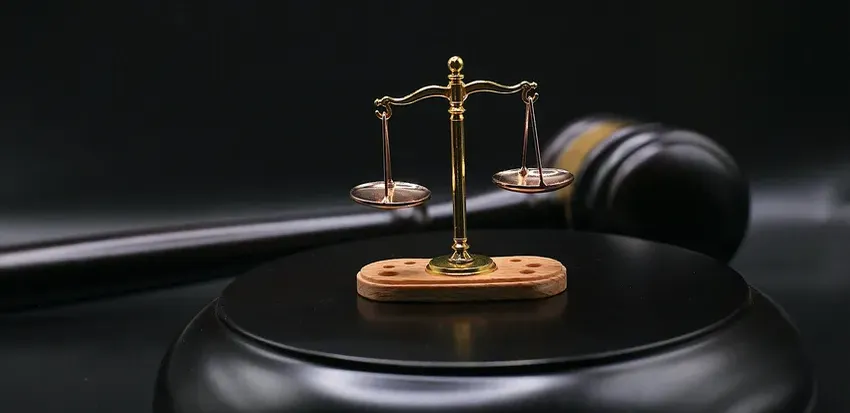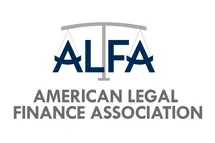- Home
- What We Do
- Structured Settlement Funding

Structured Settlement Funding for Lawsuit Plaintiffs
Structured settlement funding allows plaintiffs to access a lump sum of cash now by selling part of their future structured settlement payments. If you can’t afford to wait on your settlement checks, this option gives you money now without having to apply for a loan or taking on new debt.
Whether you’re simply trying to afford living expenses or planning a major purchase, structured settlement funding gives you financial security on your own terms.
How Does Structured Settlement Funding Work
Funding for structured settlement lets you sell part (or all) of your future payments in exchange for immediate cash. A funding company then reviews your payout schedule and makes a lump sum offer based on what you’re willing to sell. If you accept, the deal must go through court approval to make sure it’s in your best interest.
Here is the funding process in 4 easy steps:
- Get a lump sum estimate
- Coordinate with your attorney
- Secure court approval
- Receive funding
How to Access a Lump Sum From Your Structured Settlement
If you want to access a lump sum from your structured settlement, instead of waiting for smaller checks, you can apply online. It’s free and you can see if you qualify within hours.
The amount you receive depends on how many payments you’re willing to sell and the terms approved by the court. Many plaintiffs use this option to handle urgent needs without waiting on slow, scheduled payouts.
Working with a funding company that understands your state’s rules can speed things up and avoid unnecessary delays.
Who Can Sell Future Structured Payments
You must be receiving structured settlement payments from a personal injury lawsuit, wrongful death case, or similar legal action. In most cases, you can sell if:
- You’re over 18 (or working with a guardian if underage)
- Your settlement was court-ordered
- Your payment stream is long-term (monthly, quarterly, etc.)
- Your payments are assignable (not restricted by the court or annuity provider)
Do I Need Court Approval to Sell My Settlement Payments
If you want to sell future structured payments for a lump sum, a judge must approve the transaction. The court’s job is to confirm that the deal is fair and that selling won’t put your long-term financial security at risk.
This safeguard exists to make sure you’re not signing away too much value or being misled by unfair offers. In most states, it’s required by law.
Turn Future Settlement Payments Into Money Today
When Should You Consider Structured Settlement Funding
You might consider settlement funding if you’re facing urgent costs or a major life change. Basically, selling your structured settlement payments might make sense if your current needs can’t wait. Some common reasons plaintiffs choose funding include:
- Medical or surgical costs not covered by insurance
- Rent, utilities, or mortgage payments
- Avoiding eviction, repossession, or foreclosure
- Tuition, trade school, or returning to work
- Paying down high-interest debt
- Family support or caregiving expenses
If your settlement checks aren’t helping you meet basic needs, structured settlement funding helps you stabilize your situation without waiting years.
What You’re Giving Up When You Sell Payments
Many plaintiffs choose to sell payments just enough to get by, without giving up the full value of their settlement. When you sell part of your structured settlement, you may be giving up guaranteed income in the future.
That means less long-term security and it’s something courts take seriously. However, if you only sell part of your settlement, the rest of your payments continue as scheduled.
Before moving forward, ask yourself:
- Will I still have enough future payments to cover regular costs?
- Am I using the lump sum for a clear purpose (not short-term spending)?
- Do I know how much I’m selling and what I’m getting in return?
These aren’t scare tactics. They’re real questions courts and a reputable legal funding company wants you to think through before finalizing the deal.
How to Know If the Funding Offer Is Fair
A good funding company will be transparent about the discount rate, terms, and how much of your schedule you’re selling. Ask how much money you’ll receive compared to the total value of the payments being transferred. You can also request a breakdown in writing before agreeing to anything.
A fair funding offer should clearly spell out:
- The portion of payments being sold
- The lump sum you’ll receive
- Any fees or deductions
- The timeline from approval to funding
Some states require independent financial advice before the court hearing, and in most cases, you’ll want to shop around to compare quotes. Once a deal is approved in court, it’s final.
If something doesn’t feel right, wait. You can get quotes from multiple companies and compare.
Is Structured Settlement Funding A Loan?
Structured settlement funding isn’t a loan because you’re not borrowing money or taking on new debt. There’s no repayment plan, interest accrual, or debt collection. You’re selling an asset you already won…your future settlement payments.
There’s nothing to repay. Once the court approves the deal, a funding company such as Thrivest Link takes over the right to collect the payments you sold. That’s it.
This makes it different from traditional lending, and it’s why your credit score, job status, or current income usually don’t matter.
Frequently Asked Questions

Who typically applies for structured settlement funding?
Structured settlement funding is commonly used by:
- Personal injury plaintiffs who need to cover unexpected medical or living costs
- Wrongful death beneficiaries seeking to secure housing, pay tuition, or manage family needs
- Plaintiffs whose financial needs have changed since their original structured payout was created
What if I only want to sell part of my settlement?
That’s common. Many plaintiffs choose to sell just a portion of their settlement payments to cover current needs while keeping the rest.
Does my credit score affect structured settlement funding?
No. Since you’re selling a guaranteed asset, structured settlement funding doesn’t depend on credit, employment, or income.
Can I sell structured settlement payments from a wrongful death case?
Yes. Beneficiaries of a wrongful death lawsuit can often sell future structured payments, but court approval is still required.
Need Help?

Legal Funding Request Form
Do you have questions about legal funding or curious if you qualify? Let’s connect!
Our Legal Funding Memberships & Associations
Thrivest Link Legal Funding is an industry leading pre-settlement funding firm offering fast cash advances and lawsuit loans nationwide.
Hours of Operation
Holidays : Closed








